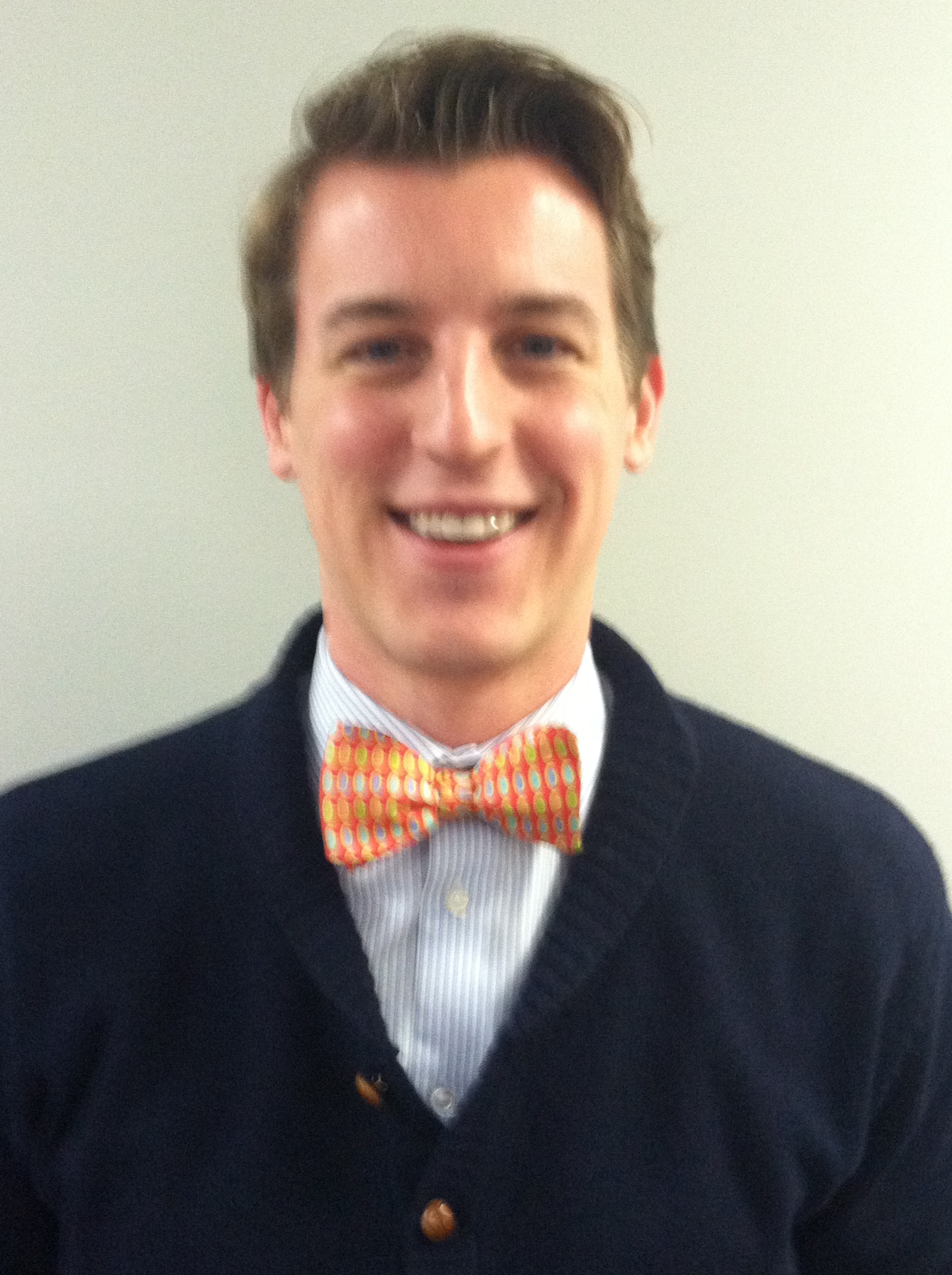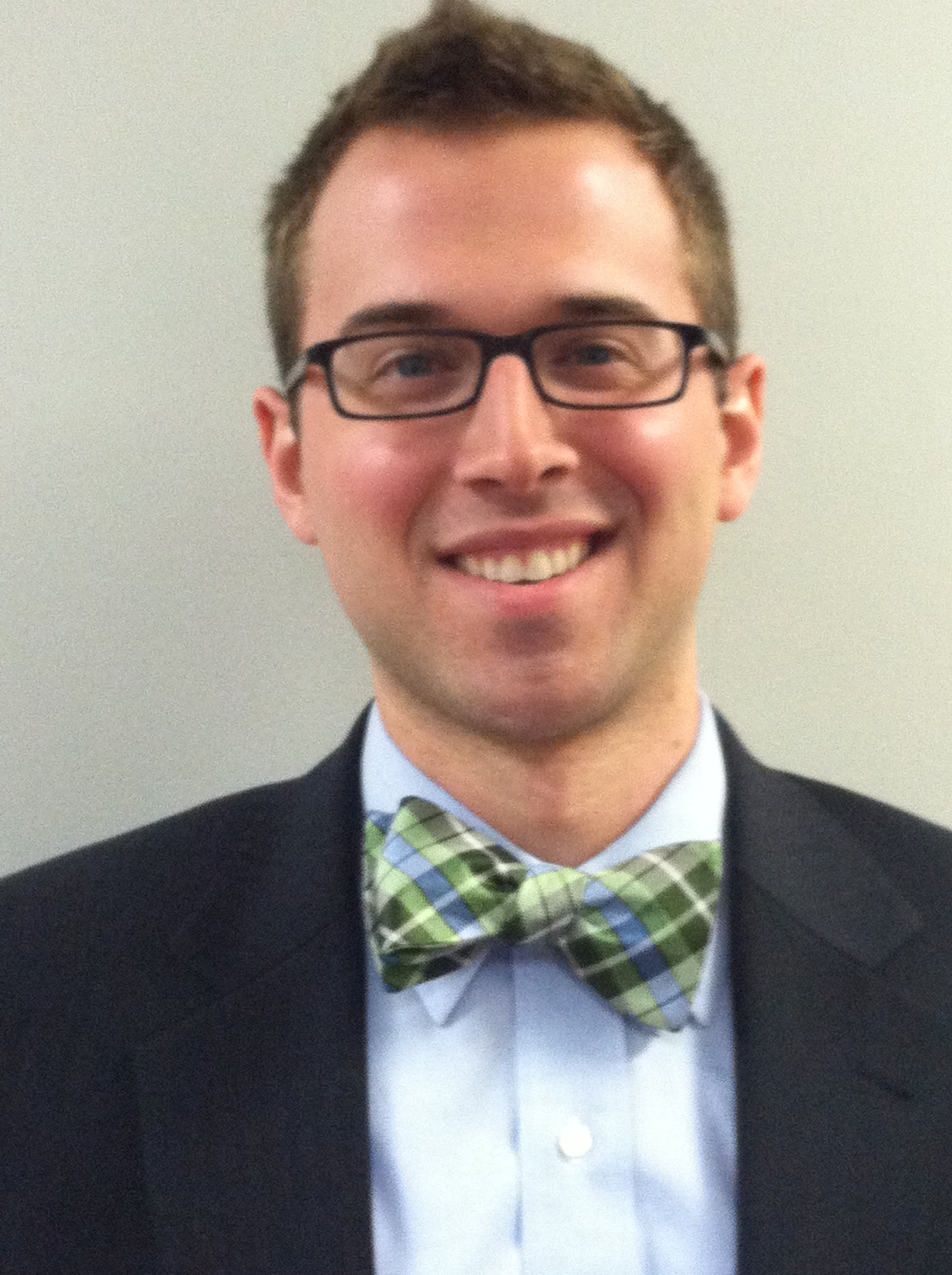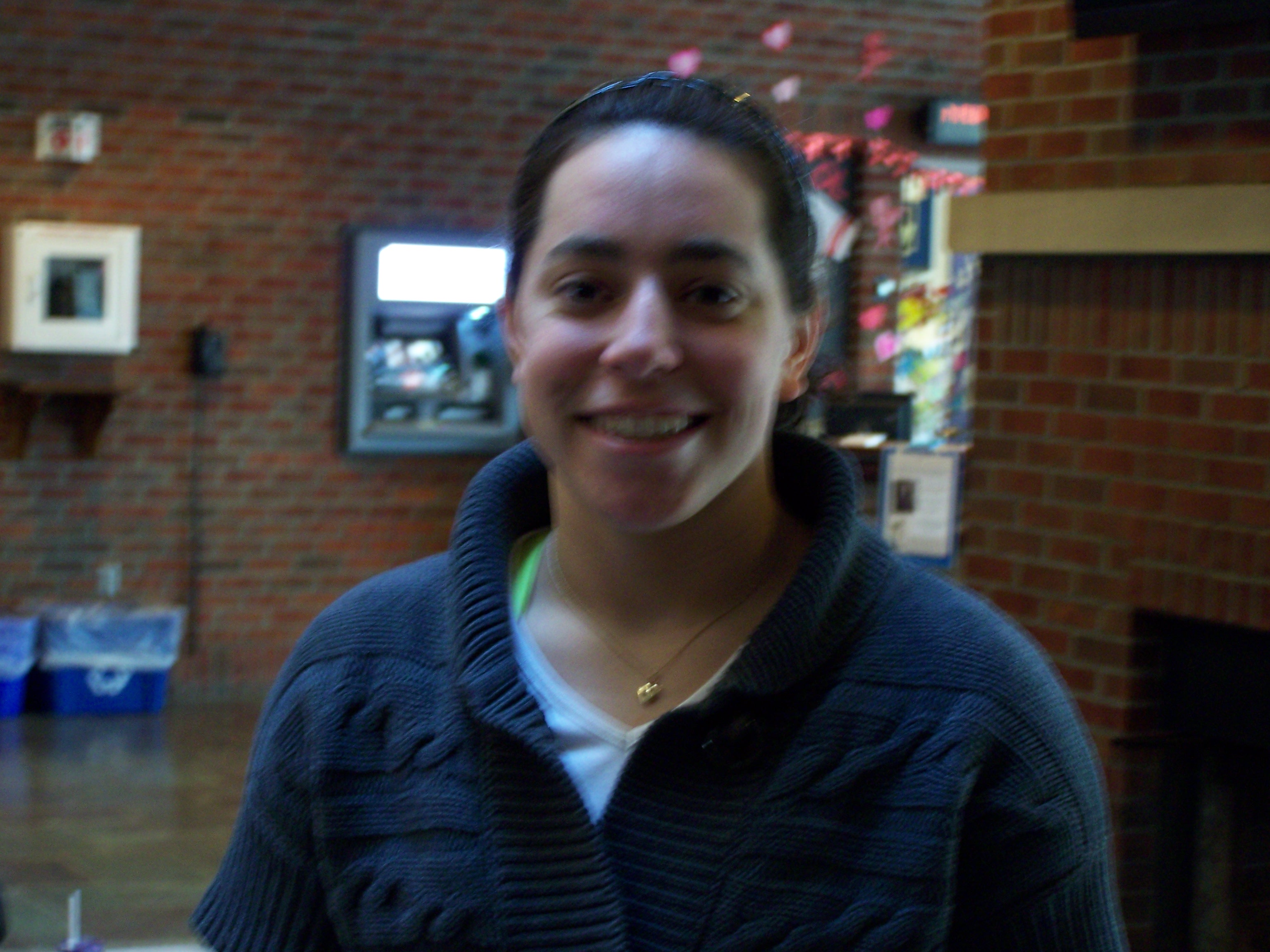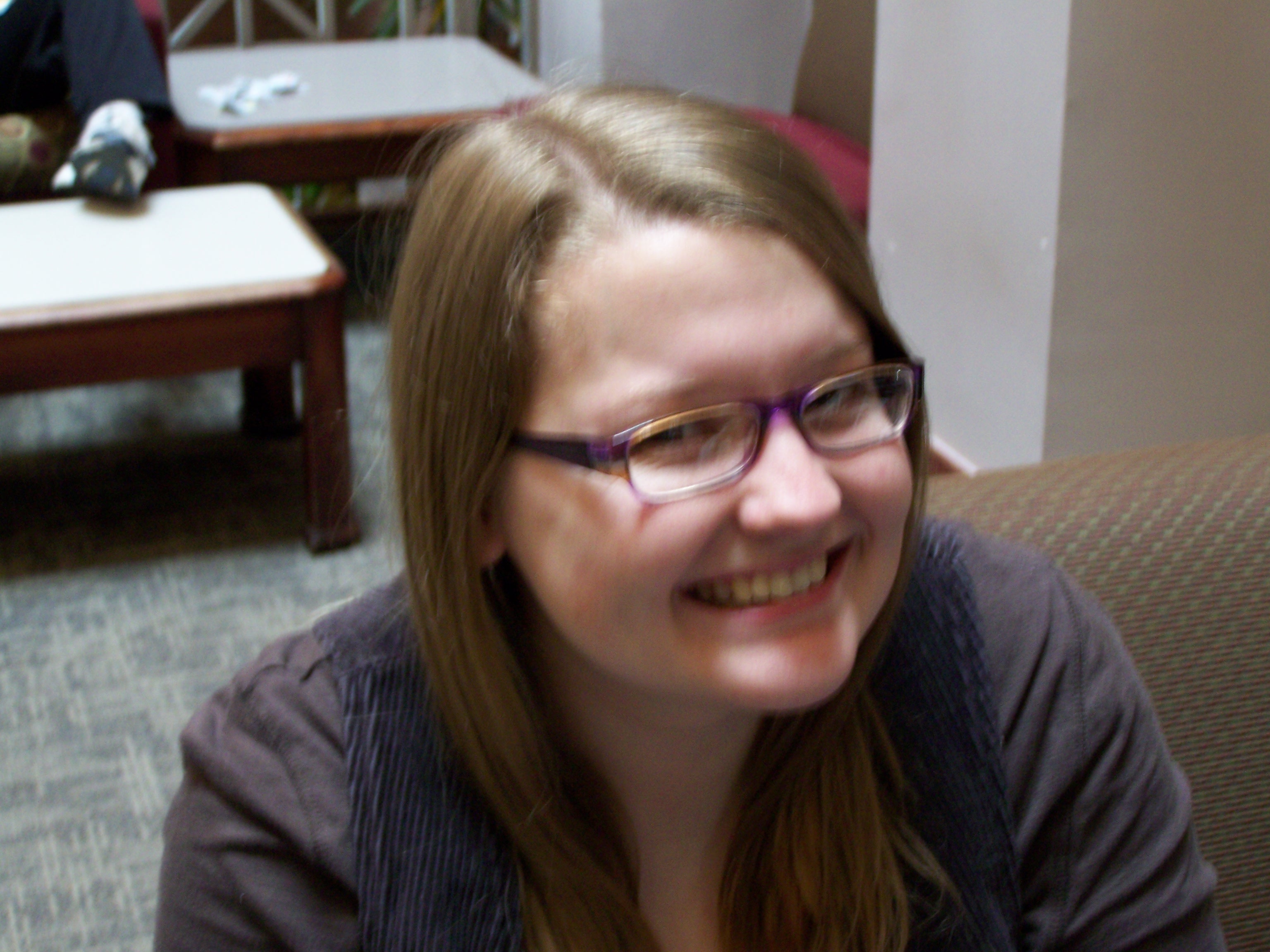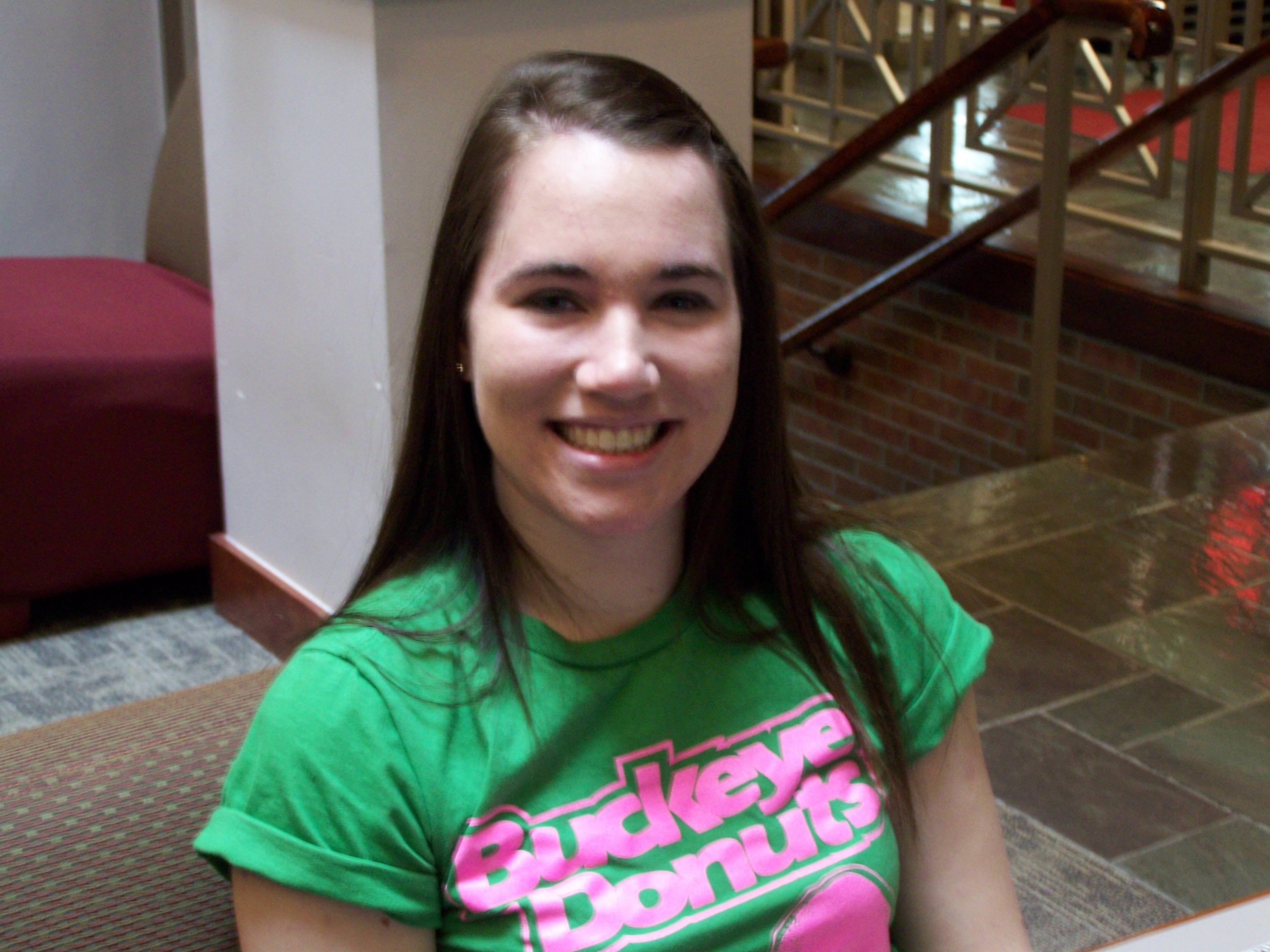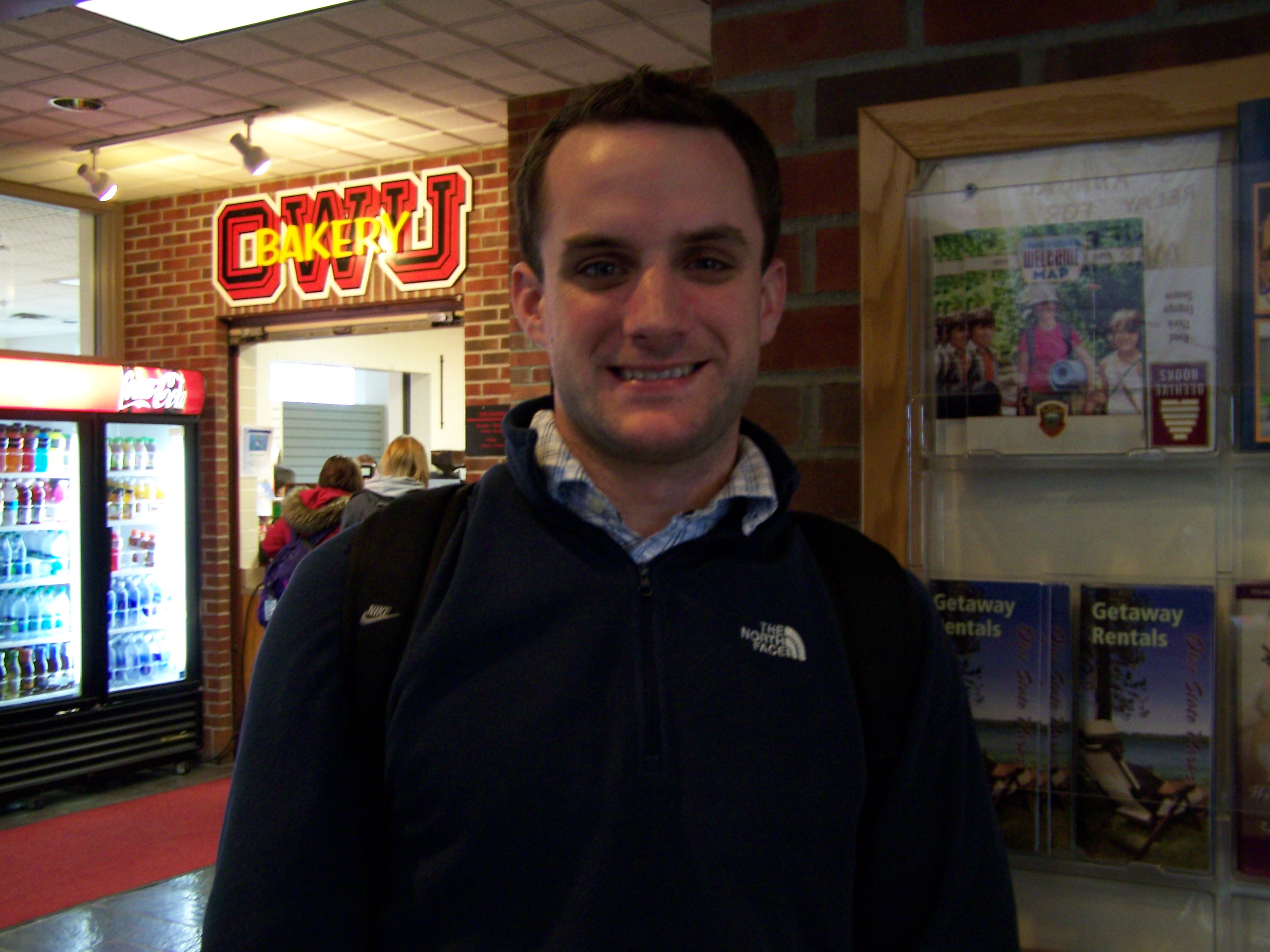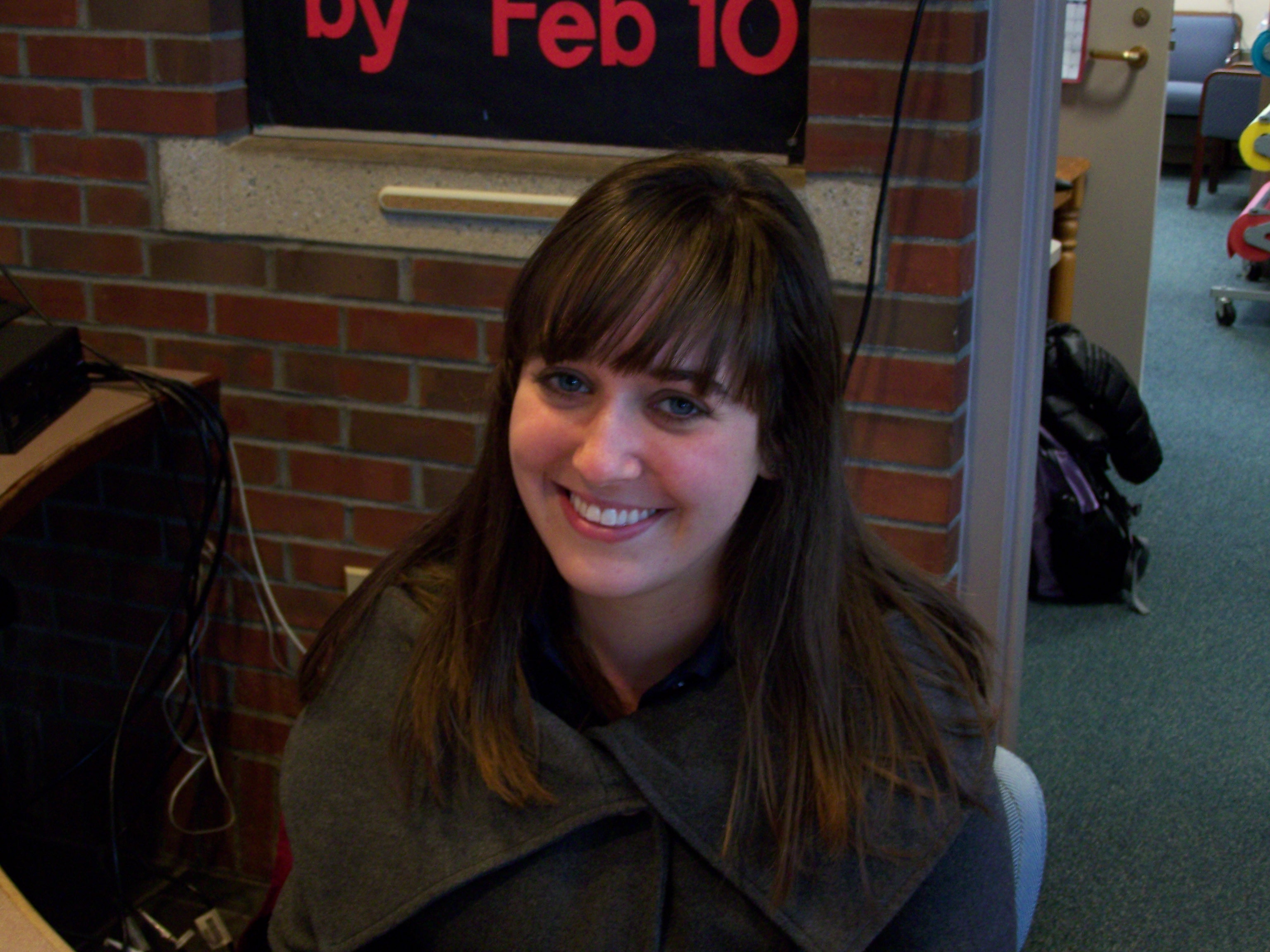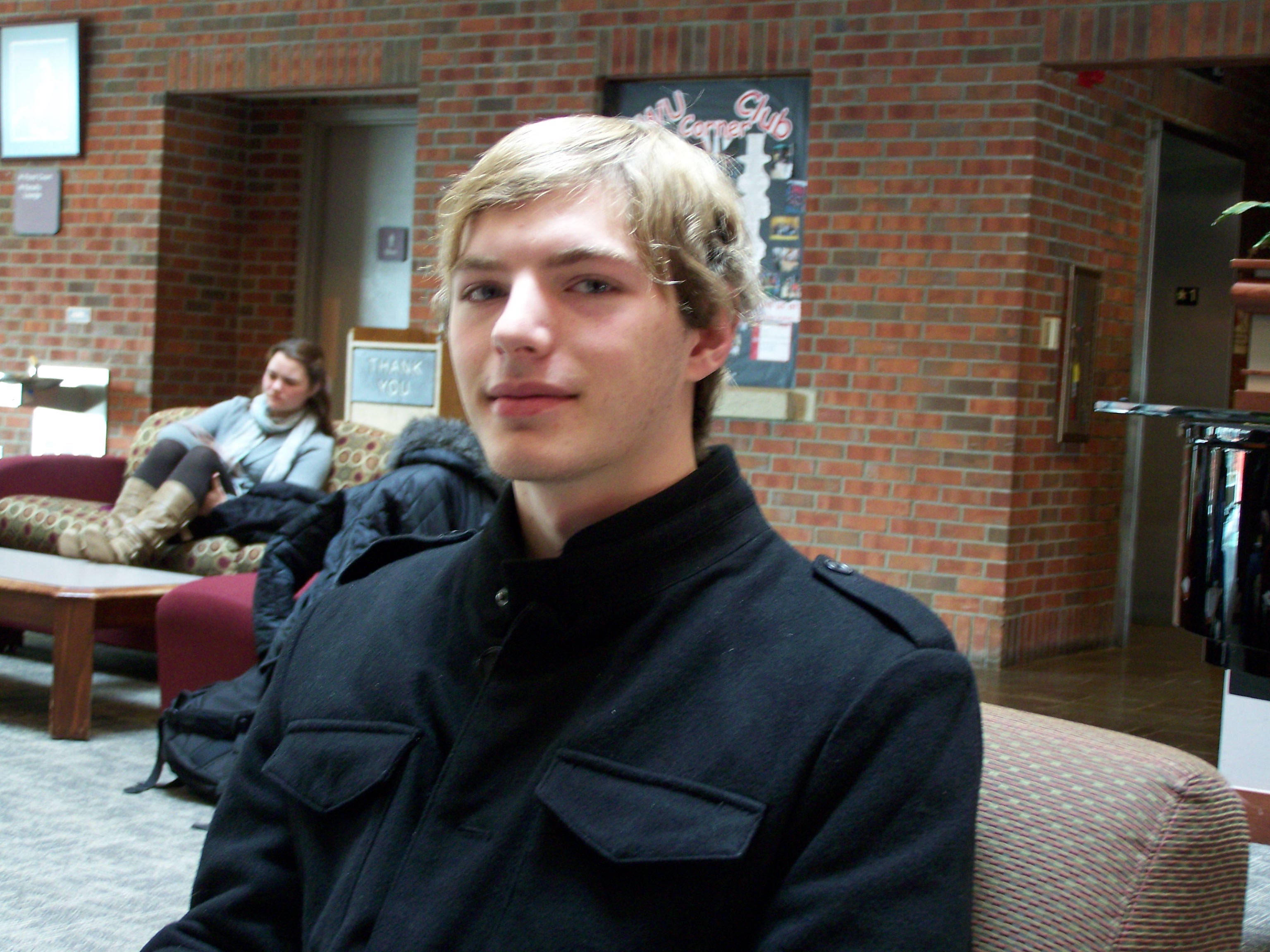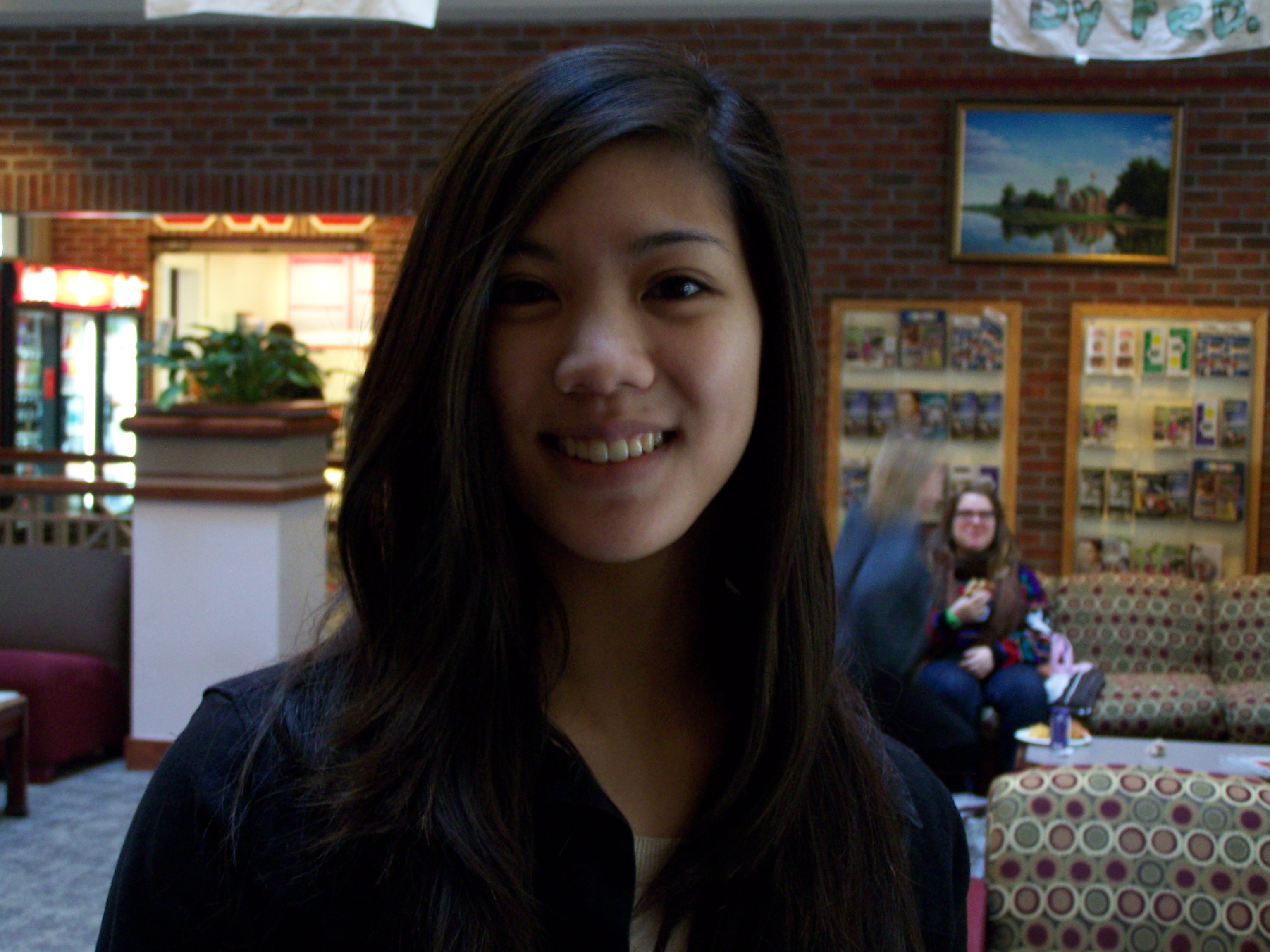Four years after the doors of Phi Gamma Delta (Fiji) closed at Ohio Wesleyan, the fraternity has returned to restore the values it once held on campus.
During the mid-2000s Fiji’s numbers started to decline, and their members were straying from the values of the fraternity. In 2008, the graduates decided to close the chapter.
They worked in partnership with the university, knowing they could return in the future and re-establish the chapter with a values-based recruitment effort, according to Brett Pytel and Josh Moore, representatives of the International Headquarters of Phi Gamma Delta.
After presenting to a Greek Life Expansion Committee, it was decided that Fiji would return to campus Spring of 2012.
With the help of Pytel and Moore, the chapter will choose men to be the founding fathers of the chapter.The men chosen will have the unique task and opportunity to build the foundation of OWU’s reestablished Theta Deuteron chapter.
“The organizational structure, tone and presence at OWU will be determined by values, determination and motivation of each individual member,” Pytel said. “They will be responsible for becoming fully contributing members throughout the OWU community.”
The process of selecting the founding fathers will extend over six weeks.
During this period, interested men will have the opportunity to learn more about the organization, ask questions, hear about experiences from graduates and meet men that share the same interest of rejuvenating Fiji.
On March 8, the initial founding fathers will be chosen and pledged to the fraternity. The same evening a dessert reception called “Evening with the Fijis” will be held off campus.
“Everyone on campus will be invited to this formal event to help celebrate the return of Phi Gamma Delta to Ohio Wesleyan,” Pytel said. “The Fraternity will introduce the new men, give away their scholarships, philanthropy money and thank the entire campus community for being such gracious hosts.”
Because academic achievement is one of Fiji’s values, several academic-based scholarships will be available for students.
According to Moore, all the men who join Fiji and uphold at least a 3.0 GPA will receive a $500 Academic Achievement Award. There will also be scholarships available to those who don’t go through initiation.
“There is no commitment to join the organization or even participate in the recruitment process to be eligible to receive this scholarship,” Moore said. “The graduates from the chapter wanted to show their commitment to having a strong relationship with the university with their return and give back to the community at the same time.”
The next event will be an information session on Feb. 19 at 7 p.m.
Pytel said he was looking forward to reaching out to the OWU community and reaching out to individuals who thought they wouldn’t consider Greek life.
“Being a fraternity man is more than wearing a Fiji t-shirt,” he said.
Fiji’s sister sorority is Kappa Alpha Theta, which has an active chapter on campus.
Sophomore Sarah Hartzheim, a member of Theta, said she is excited to have the brother fraternity of her sorority on campus again.
“The Fiji recruiters have really impressed us by meeting with sorority chapters, coming to school events and being so enthusiastic about their recruitment,” she said. “I hope this will encourage all students in Greek life to support school events and the other chapters. We (Theta) definitely plan to really get to know Fiji once they’re back on campus.”
The Phi Gamma Delta Fraternity has over 7,700 undergraduate members on 140 campuses throughout the U.S. and Canada.
Other chapters in the region are located at the University of Toledo, Bowling Green State University, The Ohio State University, the University of Cincinnati, Case Western Reserve University and Michigan State University, to name a few.
The Theta chapter of Fiji at OWU was founded on Oct. 25, 1869. Notable alumni include Charles W. Fairbanks (1872), Cecil J. “Scoop” Wilkinson (1917), Dr. Norman Vincent Peale (1920), Bob Bauman (1953), Douglas Dittrick (1955), Phil Meek (1959).
Day: February 15, 2012
Transcript Valentines
To the best roommates ever, my wonderful Transcript Staff, and my lovely DG sisters.
Happy Valentine’s Day!
-Marissa
Welch 013,
Couldn’t have asked for better roomies. Love you all!
-Natalie
WoHo:My beautiful current and future housemates, please take this symbol of my undying love. You are the most beautiful group of feminist men and women I have ever met.
Love
always,
Suzie,
the Woodchuck,
and the man
in the basement
Dear Jim,
Dancing with you feels like magic.
Guess who?
Lois Lane, I love you.
-Superman
Families are like fudge, sweet and a little nutty.
IF House love.
-Rachel V.
I Dunkaroosed Up in Them Guts to find these words—there are just Jewmanji out there, and I wanted to be Attenborough. I love ya from your Snake Hips to your Sassafras and everything in between. You make my Pop Fly!
Ocelot
Love
Dear Transcript Staffers,
Your word counts rock!
Sincerely,
Your
Adviser
O: IF House
“I like my whole house!
My whole house is
great!
FROM: Fig
Baseballers train hard to increase win record
With the first pitch of the Battling Bishop’s 2012 baseball season just two weeks away, the team has been training tirelessly in the off season to have a successful showing.
Last season the Battling Bishops went 25-16, a winning record that Head Coach Tyler Mott hopes to increase this year.
“We will be just as good, if not better, than we were last season,” Mott said. “We are returning seven or eight everyday starters who are working hard to make sure this team succeeds to their fullest potential. We also have a lot of depth with our pitchers.”
Sophomore Sean Vollenweider said the team is bringing a lot of experience into the 2012 season.
“We are taking a step up from last year,” Vollenweider said. “We lost a few key players but we are returning the entire infield so we have a lot of experience which is key.”
Mott said the baseball team has implemented different off season training strategies that are a positive addition to the program.
“We’ve included workouts in the pool on Sunday, free swims to take advantage of the beautiful Meek Aquatics Center,” Mott said. “We have also increased the intensity of strength work outs. Overall the changes are definitely positive.”
Junior Brandon Sega said the off season has been very productive so far. The pitchers have been practicing pitch accuracy rather than velocity. The batters have also been getting a lot more swings in during practice to correct errors, Sega said.
Vollenweider said the off season practices are more intense and up-beat than they were last season. This gives the Battling Bishops a greater advantage going into the start of the season, Vollenweider said.
“We are mixing very well as a team, so it should be an exciting season this year,” Vollenweider said.
Mott said there are several freshmen who will contribute to the team’s success. However, he said he would like to see a little more consistency out of them.
Vollenweider said he is pleased with the freshmen’s performance so far.
“They all have great potential and quite a few should be able to contribute right off the bat,” Vollenweider said.
Mott said he would ultimately like to see the team get better every day. Team expectations are high and they would like to win the NCAC championship, Mott said.
The Bishop’s first game is on Saturday, Feb. 25.
SLUs reapply for housing
Last week each of the eight Small Living Units (SLUs) applied for renewal to return to campus as living options next school year.
SLUs are required to reapply for their house through the renewal process, which includes an application and a roster for the following year.
SLUs must also give a presentation about their mission statement and importance to the Ohio Wesleyan and Delaware communities to a panel comprised of faculty, Public Safety officers and students.
If a SLU makes changes to its mission statement, it must explain why such amendments are necessary.
These presentations took place on Friday, Feb. 10 from 1-4 p.m.
Junior Paige Ruppel said the renewal process is necessary because the presence of SLUs on campus is beneficial not only to those students in SLUs, but also to the entire OWU community.
“We account for a lot of the student programming that goes on (on campus),” Ruppel said. “Each house member must put on a program each semester as a requirement to live in the house, and with so many projects on campus, SLUs address a broad range of issues. With eight houses on campus, most everyone can find a cause of interest to them.”
Sophomore Martin Clark, secretary of WCSA, agreed with Ruppel on that idea.
“I feel that the SLU community is a great asset to the campus,” Clark said. “It delivers a valuable living experience separate from the fraternities or dorms. The SLUs hold many events throughout the year that help facilitate important conversation about various topics throughout different social groups on campus.”
Although enrollment is down, members of both SLUs and WCSA are not worried about the SLUs ever being unavailable as a living option.
Freshman Lauren Holler, a WCSA class representative, said if there is any debate over the necessity of SLUs on campus, she’s “never heard anything negative about (the SLUs).”
“SLU living is not for everyone, but some students really enjoy the concept of living in themed houses,” said Holler. “Wesleyan Council on Student Affairs believes that SLUs are an integral part of residential life at Ohio Wesleyan.”
Ruppel said she is not worried about the SLUs going anywhere.
“I think that the entire campus, including administration, realizes how valuable the SLUs are, so if there is any opposition, I have not noticed it.”
New WCSA officers work to trim fiscal fat
The accession of a new Wesleyan Council on Student Affairs executive body has brought several changes to the organization’s budgetary process in an effort to make it more efficient.
A primary instrument in this has been the installation of new software that allows WCSA Treasurer Marshall Morris to see in real time how much money is in the account of each individual student organization.
According to Morris, the treasurer and budget committee were not previously privy to this information. Requests to see an account balance for any organization was “all done by paper,” a process that took two days.
“Many of the budget requests that came before the committee were kind of allocated in the dark, not knowing how much money the club actually had,” Morris said.
The program was headed in part by the Financial Affairs office. According to Eric Algoe, vice-president for finance and administration, it was installed in the summer but there were some difficulties with its operation in the fall semester.
“There was a period of time in the fall when the accounts were not easily available online while we were implementing our new systems, but the accounting staff of the university met with the WCSA treasurer during that time to provide as much support as possible in making their initial allocations,” he said.
Morris said the software has made his job as treasurer easier overall.
“I really do like it,” he said. “I think it provides a more clear understanding of what the status of each club is. That protects us from over-allocating money to them.”
Morris also said he has experienced some difficulties with the program. Despite being able to view balances for individual organizations, he and the budget committee does not have permission to see how much money is in the aggregate WCSA account.
WCSA’s budget comes from the student activity fee, a flat rate of $110 paid by all students each semester; the budget committee can therefore make a rough estimate of the balance of the WCSA account by multiplying the number of currently enrolled students by 110. Morris said while this is helpful, he’d like the ability to know the exact amount of money he and the committee have to work with.
According to Morris, deciding balances he is allowed to see is entirely up to the administration.
“This was something so far above any student organization,” he said. “The students really didn’t have a say, but this is something they thought would help maintain accounts on their level. They have so many more accounts and stuff than I do. I was just granted one little sliver to help better accurately fund organizations.”
Algoe said the administration has “exercised almost no influence or control” over the WCSA account, only handling money transfers and ensuring “nothing illegal happens with the funds.” He was unaware the lack of permissions would be an issue for the budget committee since “the amount is very straightforward,” but it would be an easy problem to fix.
“It’s as simple as us adding one more line to the permissions of what they [the committee] can view using the online tool,” he said.
He added that there are some idiosyncrasies with the aggregate account at the beginning of the year, so the committee would need to be prudent in its actions during that time.
“The one thing we will need to work with the treasurer to understand is that the amount will fluctuate during the first few weeks of each semester as students enroll late or withdraw and have their fees refunded,” he said, “so it will be important to hold back around 10 percent from the initial allocation until the dust settles, so to speak.”
Furthering his efforts to make WCSA more “fiscally responsible,” Morris has also redesigned the budget request form student organizations use to solicit funds.
The new form requires an itemized list of each specific expense needed for any event or program. Instead of listing broad categories such as “transportation” or “lodging,” organizations must now determine how much money they need for each item within those groups.
“That’s what we need as budget committee to more effectively and accurately allocate funds to the club or organization,” Morris said.
According to Morris, the new form is “much more streamlined.”
“The previous one had a lot of things to get lost in,” he said. “This is the bare bones of what we need, and we only want the information we need.”
The committee recently granted People Regarding Individual Diversity Everywhere $3,000 to fund a trip to the Midwest Bisexual, Lesbian, Gay, Transgender and Ally College Conference from Feb. 10-12.
PRIDE President Anthony Peddle said he thought the new form made the request process easier.
“It helped us a lot to make sure we allotted enough for each specific thing,” he said.
Sam DeJarnett, vice-president of the Student Union on Black Awareness, disagreed.
“It’s very tedious,” DeJarnett said. “If you’ve never done it before it can be confusing.”
The budget committee recently granted SUBA and Sisters United $3,400 to fund a Feb. 25 event titled “Death of the Diva,” which the two organizations are hosting in conjunction with the Women’s House; the House of Black Culture; Black Men of the Future; and the women’s and gender studies and theatre and dance departments.
“Basically, you have to leave no stone unturned,” said Alexis Williams, former Sisters United vice-president.
In addition to the form, organizations wanting WCSA money must make a presentation of their request before the budget committee to decide if they will recieve funding.
Morris said the primary purpose of the presentations is to thoroughly inform the committee about what it will be funding.
“If we’re unclear on something, instead of granting them zero dollars we’ll ask them to come back,” he said.
Peddle said his presentation was casual and easy.
“We just presented the basic conference necessities, what we want[ed] to do at this conference and what we hope[d] to gain from it,” Peddle said. “It was just an informal conversation so they could learn more about it and make a better-educated decision.”
DeJarnett said her recent presentation for “Death of the Diva” went smoothly, but she has experienced difficulty with procuring funds in the past, especially with regard to SUBA’s annual Step Show.
“Since the beginning of Step Show there’s always been some difficulty,” Dejamett said. “I don’t know whether it’s the concept that’s difficult to grasp or just the allocation of funds in general, but there’s always some miscommunication. I find it weird that it was easy to get $3,400 from WCSA, but these organizations [SUBA, HBC, Sisters United, BMF] struggle all the time.”
In addition to ad hoc presentations for specific events, student organizations are now required to make annual funding presentations each semester, a process previously undertaken only once a year.
Peddle said these proffers do not require the specificity of those for single events.
“The ad hoc budgets are more specific and itemized, whereas the general budgets are more generalized and overviews of events,” Peddle said.
Morris said the committee uses the annual allocations they offer to organizations as a guide when hearing ad hoc proposals.
“If a club is consistently only doing supplemental funding, then we’re like, ‘This club’s not really on the ball,’” he said.
Sound-Off OWU: What was the worst event that happened to you on Valentine’s Day?
Weekly Public Safety Reports, 2/7/12 – 2/11/2012
–On Feb. 7, at 11:15 p.m., PS officers were dispatched to Thomson Hall on a welfare concern. The student was transported to Grady Hospital by Delaware EMS.
–On Feb. 8, at 11:45 p.m. Sigma Phi Epsilon fraternity was referred to student conduct for an unregistered party following a routine safety check
by Public Safety officers.
–On Feb. 8, 11:58 p.m., an OWU student was referred to student conduct for alcohol prohibition.
–On Feb. 9, 7:36 p.m., Public Safety officers were dispatched to Stuyvesant Hall on a report of several individuals attempting to push the porta-toilet over. Upon arrival the perpetrators had left the scene after knocking the portable toilet over. Investigation is ongoing.
–On Feb. 10 at 4:45 p.m., Public Safety dispatched to 20 Williams Drive on a welfare concern. Emergency transport was not required.
–On Feb. 10, at 11:10 p.m. a Bashford Hall resident was charged with possession of marijuana and drug paraphernalia.
–On Feb. 10, 11:40 p.m., two Bashford Hall residents were referred to student conduct for alcohol prohibition.
–On Feb. 11, at 2:10 a.m., Public Safety and Delaware City Police responded to a security alarm at the Beeghly library. There were no signs of forced entry. A search of the premises failed to locate the cause of the alarm.
Teammates forget the past and press full court
Freshman Mary Corbett and Sarah McQuade were once rivals but now work together on the Ohio Wesleyan Women’s Basketball team.
Corbett and McQuade went to competing High Schools in Ohio and the two became known for their rivalry due to their similar skill set, age, and talent.
Corbett and McQuade first met their junior year of High School at a basketball program where the two, much to spectator’s surprise, became close friends.
“At first it was awkward because we knew who each other were but we became best friends after playing with each other,” Corbett said, “She is a reason I came to Ohio Wesleyan because I knew we both came from successful high school teams where we both had been very well coached and I liked the idea of being on the same team as her.”
McQuade echoed Corbett’s thoughts and feel the two work very well together.
“I think it makes us play better together because we both know each other’s strength and weaknesses and what each other is going to do out on the court,” McQuade said, “Our rivalry in high school doesn’t affect us at all but to outsiders, I’m sure they think it’s funny to see us playing together.”
The Bishop’s are in somewhat of a transitional year, their assistant coach for the last four seasons, Stacey Reed, has now become their head coach and the young team is lead by mostly freshman and sophomores.
Freshman Caroline Welker, who was the top scorer in the team’s December 31 game against Wittenberg with 18 points, believes the team is constantly improving the way they work together.
“We have been continually improving throughout the season, but we have still have been struggling to bring it all together in one game,” Welker said.
McQuade believes the team’s task to replace three leading scorers from last year is happening at a steady rate.
“If you just looked at our record, most would say we’re having a down year but were growing together. There are four freshman starting and a sophomore so we are very young,” McQuade said.
Corbett also believes the team’s transitional phase will pay off going into the end of the season.
“I think our performance this year has not been a direct reflection of all the talent and potential we have as a team,” Corbett said, “We have gone through a lot this year as a team and I think our experience now will help us grow for the end of the season.”
The Bishop’s defeated Oberlin on Saturday 81-74 and their record currently is 8-13. The Bishops next home game is Wednesday against Wooster in the Branch Rickey Arena.
Students hopeful with dates after date auction
Rafiki Wa Afrika’s first Date Action raised auction prices skyward while overall funds were well beyond expectations.
All proceeds are going toward the Ghana Student Education Fund, an organization that looks to better the education of students in Ghana and allows brilliant and deserving children a chance at achieving their dreams.
Students gathered in the Hamilton-Williams Campus Center Atrium on Friday at lunchtime to watch their fellow classmates be auctioned off, and to have a chance to bid on someone. There were 17 students auctioned off; eight women and nine men.
The opening bid was $10, and the auctioned-off date would accompany the highest bidder to a fixed dinner at Bun’s Restaurant later that evening. There was plenty incentive to make a bid: all of the students being auctioned off were dressed to impress, lobster was on the menu and all the proceeds were going to a good cause.
Sophomore Sophie Kiendl attended the auction and had hopes of bidding on her fellow classmate and friend Dylan Porter. But when someone bid $70 on him Kiendl couldn’t offer any more money, explaining that Porter is a great guy, but he wasn’t worth that high a price.
Other students thought differentl
about shelling about large amounts of cash, especially sophomore Elizabeth Smith, who bid $300 on sophomore Danyal Omar.
Junior Jacqueline Osei-Bonsu, who led and ran the date auction, said that Smith was excited to donate the $300 because she cares so much about the Ghana Student Education Fund, and wanted to take Danyal out for a nice meal.
This was the first time Rafiki Wa Afrika has ever held the auction, so Osei-Bonsu anticipated running into a few organizational problems.
“It was really hard getting people together and trying to finalize things when we couldn’t reach people, but in the end it all came together,” she said.
Osei-Bonsu said that the main problems included finding a place for the students to have their date and rounding up the auctioneers. She said she was nervous that students wouldn’t bid, but was thrilled everyone was auctioned off, and the lowest bid was $20.
The total for all 17 students was $1075, with an average bid just above $60. This number was way above Rafiki Wa Afrika’s expectations.
The entire Rafiki Wa Afrika club was very excited about being able to donate $1075 to the Ghana Student Education Fund.
Sophomore Porter was asked if he would auction himself off for the cause, and he said he couldn’t say no.
“I’m always one for helping, and if my mere smile can help raise some money I’m totally in” said Porter. “I am a bit disappointed I wasn’t the highest bid, but hey I was nervous on stage and didn’t do questionable things like fellow auctioneer Pierre Freed did, like take my shirt off in efforts to raise more money. The dinner at Bun’s was quite the treat, and I got to meet new people. Overall I am happy I was able to contribute, and hope I can next year as well”.
Freshman Maria Urbina also auctioned herself off. She said she was originally nervous to go up on stage, but when two of her friends got into a bidding war, she said she was flattered.
Junior Chris Ostrowski ended up winning Urbina, but he was unable to take her on the date to Bun’s because he had a lacrosse game that night. Freshman Jane Suttmeier, a friend of Urbina, filled in for Ostrowski.
Suttmeier said although the atmosphere at Bun’s was a bit awkward between the other dates, she had a great time and was happy to see so many classmates participating in a great cause.
Because of the auction’s success, Osei-Bonsu and Rafiki Wa Afrika have plans of holding another next year.
“I feel the event went extremely well and I heard feedback from other people which helped in drawing my conclusion that it all turned out almost perfect and we just had to work on a few more things to make it perfect for next year,” said Osei-Bonsu.
Myths debunked during Siegfried lecture: Eating disorders are topic of discussion to promote treatment
Nicole Siegfried, an eating disorder lecturer, urged students to not fall prey to myths concerning eating disorders during her Feb. 9 lecture. Siegfried’s lecture was part of the Food Course Connection.
Assistant professors of Psychology, Vicki DiLillo and Jennifer Yates, hosted the lecture.
“[The] food course connection is one of those interdisciplinary course connections that is trying to look at a specific theme or topic from a variety of different disciplinary perspectives,” DiLillo said. “We thought that having someone who could come in and talk about eating disorders would be of interest to students and would be potentially helpful to them.”
Siegfried’s lecture dealt with myths behind eating disorders, such as eating disorders are effective weight management.
“The truth is, disordered eating such as restricting, vomiting, (or) laxative use are not only dangerous, but are not effective measures for weight loss,” Siegfried said during her lecture.
“In fact, a majority of individuals… who go on diets or severe diets gain their weight back and then some.”
Other myths included the modern adage that says most college freshmen gain 15 pounds.
“This is actually a myth,” Siegfried said. “It makes it more likely that [college freshmen] might set the stage for restrictive eating.”
Siegfried said half of freshmen will gain weight and another half will lose. However, the difference between them is only five pounds.
Siegfried, who works at a treatment facility for those who suffer from eating disorders, speaks at many events, both in her area and at national conferences.
“I really want to help educate especially college students on what eating disorders are, understanding how to identify them either in themselves or their friends and how best be able to approach someone who has an eating disorder to help get them the help they need,” Siegfried said before the lecture.
Senior Ane Shoemaker was one of many students to attend the lecture.
“I have had an eating disorder in the past, and so I’m interested in seeing more modern information on it and just being updated on that information,” Shoemaker said. “Some of the myths were surprising to me.”
Siegfried mentioned many ways to help loved ones who may have/have an eating disorder. Siegfried also mentioned that using phrases like, “You look too thin,” should be avoided, since that may send the message whatever disordered eating is being practiced is working
Shoemaker had advice to those who may be approached about having an eating disorder.
“Be open,” Shoemaker said. “If someone approaches you; they’re really trying to help you. They care about you, they’re not trying to bring you down. They’re worried about your survival. They don’t want you to get hurt or fall prey to this more than you already are.”
Tips to help those with eating disorders:
– Set a time to talk.
– Communicate your concerns
– Ask your friend to explore these concerns
– Avoid conflicts or a battle of the wills
– Avoid placing shame, blame or guilt
– Avoid giving simple solutions
– Express your continued support
